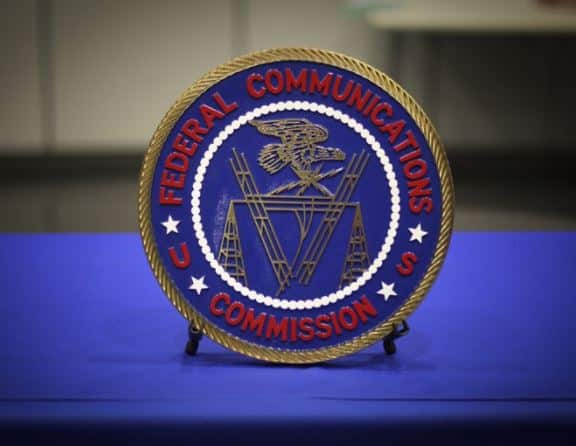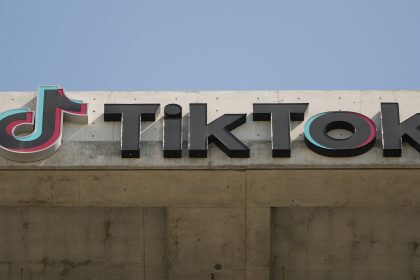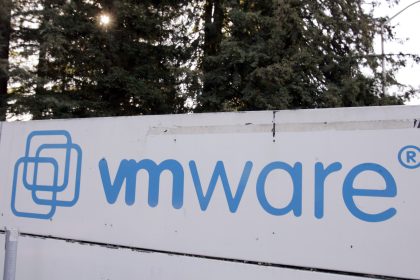FCC Asks Congress for Universal Service Fund Reform

WASHINGTON — The Federal Communications Commission is asking Congress to help reform how it collects money to expand and provide telecom services to every American.
The reason? The Universal Service Fund is stuck in a “death spiral,” according to FCC Commissioner Brendan Carr.
He and the other commissioners recently approved a 65-page report that lays out how Congress can help fix the program that provides support to rural and low-income Americans struggling to get and afford broadband services.
This request for reform comes after Congress made the largest investment in broadband — $65 billion — in the infrastructure package the FCC and its counterparts are currently dispersing through a handful of programs that target rural areas, low-income Americans, tribal lands, schools and other community resources.
According to the report released Monday, the commission plans to use its pre-existing Universal Service Fund to “build upon that investment” and “improve the ability” of the commission to best build the broadband infrastructure that connects every American to the internet.
The USF was created in 1996 to pay for telecom expansions and provide subsidies to customers, helping them access telecom services.
“The program is funded through a mechanism that made sense back in the dial-up and screeching modem days of the 1990s — back when you were far more likely to have a long-distance calling card in your wallet than an email address in your name,” Carr said. However, it needs a refresher now that broadband internet is included in the system, he and the other commissioners agreed in their statements.
“Generally speaking, the FCC funds (the Universal Service Fund) through a line-item charge that carriers add to consumers’ monthly bills for telephone service,” Carr explained. “Those traditional phone revenues have declined sharply from a high of around $80 billion in the 2000s to less than $30 billion today. So the percentage charge or contribution factor that consumers pay has been on the rise — steadily increasing from only 6% in 2001 to roughly 30% today.”
Without a change in how those fees are structured, consumers will face steeper and steeper fees, according to a study cited by the FCC.
That’s why when Congress allocated money to the FCC and its counterparts to build out broadband infrastructure, it also tasked the commission with looking into the sustainability of this fund.
Programs to be supported
The money was slated for programs that existed but had new needs.
With everything from work and school to doctors’ appointments online, there was a general need for internet service, so rural internet providers are getting $42 billion to get internet to everyone through the Broadband Equity, Access and Deployment Program.
At the same time, schools and libraries also needed more resources to help connect people who traditionally relied on them for internet services.
Prior to the pandemic, the commission routinely gave money to schools and libraries through its E-Rate program, which distributed $6.2 billion between 2018 to 2020. The commission added the Emergency Connectivity Fund in 2020, due to the pandemic, and an extra $7.17 billion was distributed.
At the same time, the commission expanded its broadband subsidies to low-income Americans.
Between 2011 and 2020 the commission distributed $14.7 billion through its Lifeline program to provide internet to low-income Americans. During the pandemic $3.2 billion was given out through the Emergency Broadband Benefit Program due to more people becoming eligible.
That program eventually became the Affordable Connectivity Program, which the commission is looking to expand by signing up the estimated 22 million households that are eligible but have yet to access the program.
Because much of the commission’s work is focusing on closing that affordability aspect of the digital divide, it says any reform should “avoid raising the cost of broadband service and shifting the financial burden from corporations to consumers.”
The report stops short of making a specific recommendation as to how Congress can reform the fund but discusses multiple options.
Congress’ options
Those options include broadband internet access revenues, which would be a cost to internet customers for accessing services and having Congress directly appropriate money to the USF.
The report, built on feedback, notes that “a few commenters” made this suggestion.
Carr in his statement came out against this option, saying “the record and the commission’s report throw cold water on the idea that the FCC should just start assessing broadband Internet access service” because of the cost to consumers.
Instead, he sided with the “wide variety of commenters called for legislation to expand the commission’s authority so it could assess contributions on the broadest range of service revenues, including from digital advertising and other online edge services that benefit from broadband networks,” according to the report.
Those would be considered “edge providers,” services like search engines, social media, and streaming companies that all benefit from having a large consumer base with access to the internet.
“The commission’s report rightly notes the long-term sustainability of assessing large technology companies as another important benefit of this approach,” according to the report. “It points to a study showing that the revenue growth of digital advertising is significantly higher than that of (broadband internet access revenues), indicating that the contribution factor would only continue to decrease over time.”
The commission is asking Congress to clarify which direction it should go. Legislative action is needed to give the commission increased authority to expand the service revenue base because “there is significant ambiguity in the record regarding the scope of the commission’s existing authority to broaden the base of contributors,” according to the report.
The report was adopted with unanimous bipartisan support on the four-person commission.
Carr issued the lengthiest statement, laying out much of his reasoning for adopting the report.
Commissioner Nathaniel Simington agreed with Carr, “particularly his emphasis on relating funding for connectivity spending to the network effects enjoyed by companies that depend on universal connectivity—network effects far larger and more scalable than last-mile charges made by home internet service providers,” he said in a statement.
Madeline can be reached at [email protected] or @ByMaddieHughes























